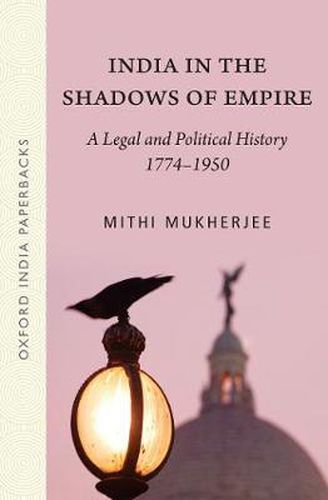Readings Newsletter
Become a Readings Member to make your shopping experience even easier.
Sign in or sign up for free!
You’re not far away from qualifying for FREE standard shipping within Australia
You’ve qualified for FREE standard shipping within Australia
The cart is loading…






This pioneering research offers a sweeping new interpretation of the complex and seemingly contradictory nature of Indian democracy and polity. In contrast to much of existing scholarship, it joins the colonial and postcolonial periods in Indian history into a seamless narrative. This book explains the postcolonial Indian polity by presenting an alternative historical narrative of the British Empire in India and India’s struggle for Independence. It pursues this narrative along two major trajectories. On the one hand, it focuses on the role of imperial judicial institutions and practices in the making of both the British Empire and the anti-colonial movement under the Congress, with the lawyer as political leader. On the other hand, it offers a novel interpretation of Gandhi’s non-violent resistance movement as being different from the Congress. It shows that the Gandhian movement, as the most powerful force largely responsible for India’s Independence, was anchored not in western discourses of political and legislative freedom but rather in Indian traditions of renunciative freedom, with the renouncer as leader.
This book would be of considerable interest to students and scholars of law, modern Indian history, and political science. It will also have a significant general appeal.
$9.00 standard shipping within Australia
FREE standard shipping within Australia for orders over $100.00
Express & International shipping calculated at checkout
This pioneering research offers a sweeping new interpretation of the complex and seemingly contradictory nature of Indian democracy and polity. In contrast to much of existing scholarship, it joins the colonial and postcolonial periods in Indian history into a seamless narrative. This book explains the postcolonial Indian polity by presenting an alternative historical narrative of the British Empire in India and India’s struggle for Independence. It pursues this narrative along two major trajectories. On the one hand, it focuses on the role of imperial judicial institutions and practices in the making of both the British Empire and the anti-colonial movement under the Congress, with the lawyer as political leader. On the other hand, it offers a novel interpretation of Gandhi’s non-violent resistance movement as being different from the Congress. It shows that the Gandhian movement, as the most powerful force largely responsible for India’s Independence, was anchored not in western discourses of political and legislative freedom but rather in Indian traditions of renunciative freedom, with the renouncer as leader.
This book would be of considerable interest to students and scholars of law, modern Indian history, and political science. It will also have a significant general appeal.